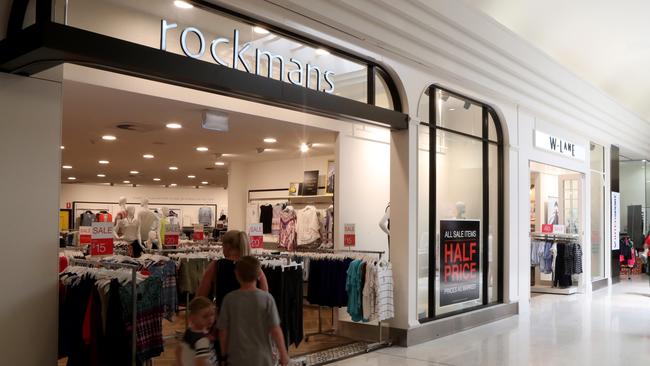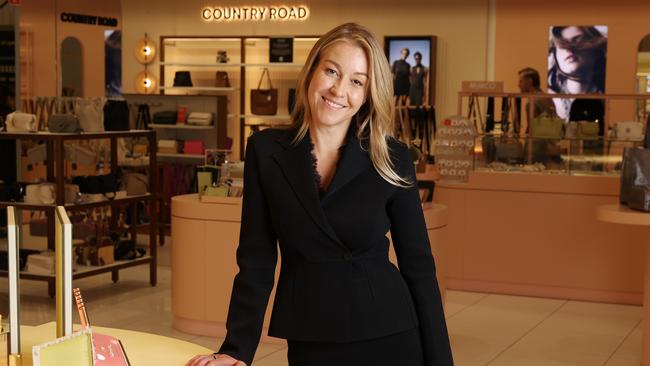And there is a second question: “Why are shareholders being left out?”
Loyalty programs are now being restored, trying to open the wallets of customers with spending power.
But to my knowledge, no retailer has bothered to look at the corporate history books when retailers of old discovered their most affluent and best spending customer base was actually their shareholders.

Australia, as I have explained previously, is now leading the word in small shareholder network development, but the retailers have not woken up that Australian technology now gives them the option of offering shareholders loyalty benefits. The UK is now using the Australian technology and may be much faster.
And finally a question to government: “Do you understand that rising retail sales prolong high interest rates and your actions are contributing to incredible suffering for so many in your heartland?”
Back in May 2022, when the Reserve Bank had delayed interest rate rises for too long, it was inevitable that an extended period of higher interest rates would to required to reduce inflation which would smash people with high mortgages.
As a double blow, investors were being forced out of the rental market, which would boost rents substantially. About 30 per cent of the population suffered mortgage and rent stress, and there was an extra group who were very fearful and curbed spending.
Retailers whose business concentrated on customers under mortgage and rent stress, plus those on the edge of the crisis, would suffer badly. Many smaller operators in these markets would be driven out of business.
Ravaged Mosaic Brands has announced it is shutting down the Rockmans, Autograph, Crossroads, W.Lane and BeMe brands. It will focus on the other brands it operates, including the Katies, Noni B, Rivers and Millers. Mosaic will only survive if it can attract more affluent customers.

In theory, Kmart should have gone the same way as Mosaic, given those under mortgage and rent stress represent a major Kmart customer base.
Instead, the Wesfarmers subsidiary under Ian Bailey adapted its business by improving its product quality and focusing on the house brand Anko. It developed skills in house brand sourcing, which enabled Kmart to be a supplier to retailers around the world. It is the perfect example of top managers adapting to the retail realities.
The overall retail market has not collapsed because of the spending strength of those outside mortgage and rent stress. But, as Kmart has shown, retailing requires a different set of skills.
Some companies are adapting, while others are not.
Among the Mosaic brands to be closed is Rockmans. My guess is that the great retailer, the late Norman Rockman who founded Rockmans around the 1950s, would have found a way to adapt his brand to older more affluent customers who shopped at Rockmans in their youth.
At the start of the interest rate squeeze, I guessed that among the top adaptors would be Gerry Harvey and Katie Page at Harvey Norman
But the decline in Harvey Norman profits indicates that the model that has served them so well is struggling in this environment.
Its products and prices are fine, but the conglomeration of different stores under one roof is clearly causing a problem with older, affluent buyers.
JB HiFi moved some of its appliance retailing to its base stores that attract younger customers with spending power, and is looking to move part of its appliance operation upmarket via purchasing control of E&S Trading.
Myer performed well early in the new retail trading environment but is now struggling and new CEO Olivia Wirth has applied her Qantas experience to improving the loyalty program in the Myer operation.
What surprised was that the Myer loyalty program didn’t embrace its affluent shareholder community.

Decades ago, Myer briefly used shareholder discounts but for many years rival Buckley and Nunn traded brilliantly next to Myer’s Bourke Street store by creating an upmarket store mobilising its shareholder community.
When David Jones bought Buckley’s the shareholder discounts ceased and so did the market penetration.
Wesfarmers has launched a loyalty program involving Kmart, Target, Bunnings and Officeworks, and Priceline is aiming to create an Australian retail community.
It is a fascinating retail strategy aimed at directing those with spending power that support each of its brands into other parts of the group.
Involving shareholders might be more complex with Wesfarmers, but given the flexibility of Australia’s technology, it's surprising the wider base was not tapped.
Of course, the big institutions hate the idea of small shareholders gaining an entitlement that’s not available to them.
But the big institutions get many other benefits, including influential voting power and information access, so they shouldn’t complain.
Retailing in today’s world is about mobilising the spending power of the affluent, and most shareholders are affluent.
Finally, to the politicians. Massive state and federal government spending has generated employment and income, which caused interest rates to stay higher for longer.
And now we now have an industrial relations act which is which lowers productivity and lifts prices in certain areas, led by local airline fares
The Albanese government must accept part of the blame for the extended deep suffering from those under mortgage stress – people who are normally in the ALP heartland.







The chief executives and boards of struggling retailers need to take a good hard look at themselves and ask the question: “Why are we falling off a cliff when retail sales are actually rising?”